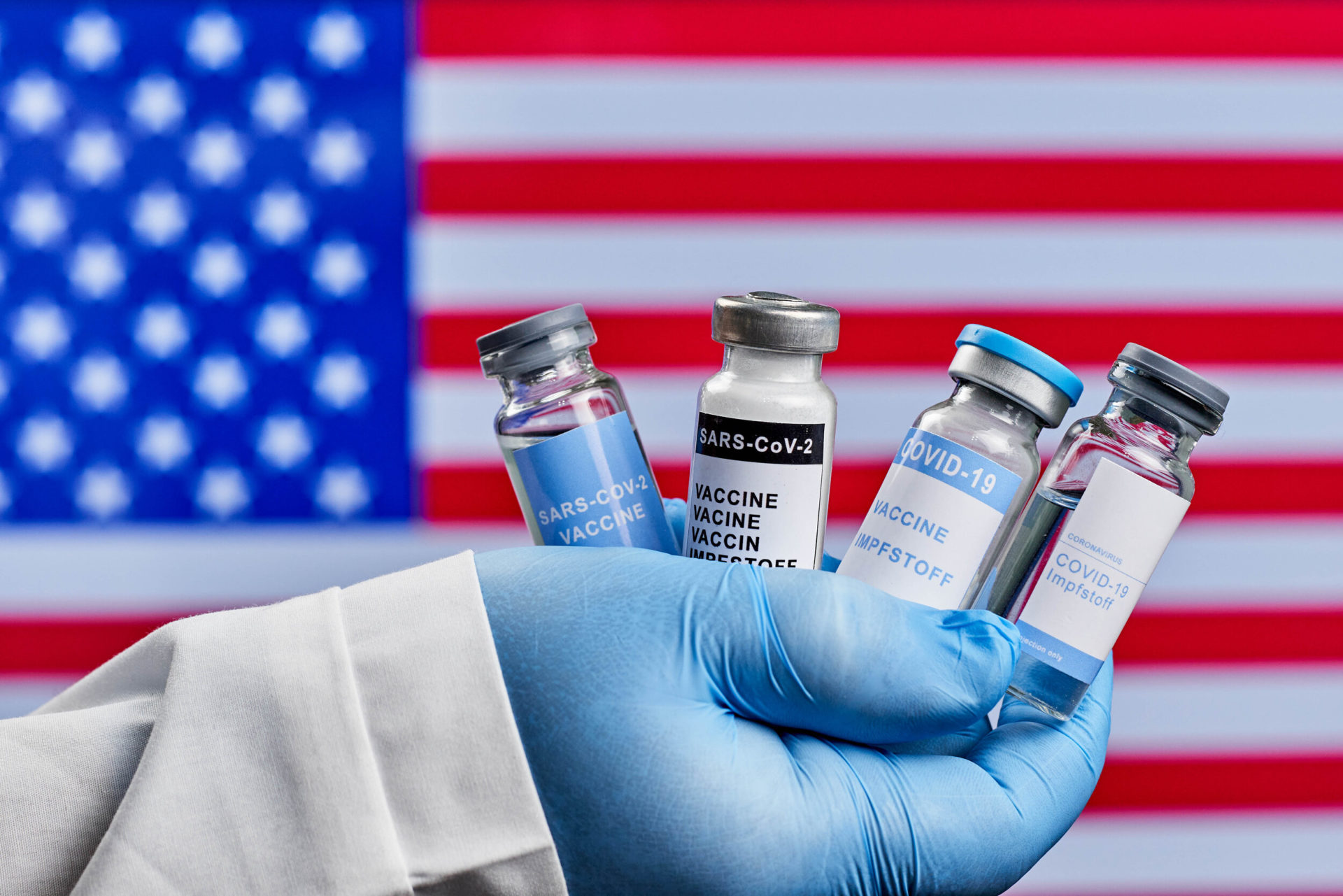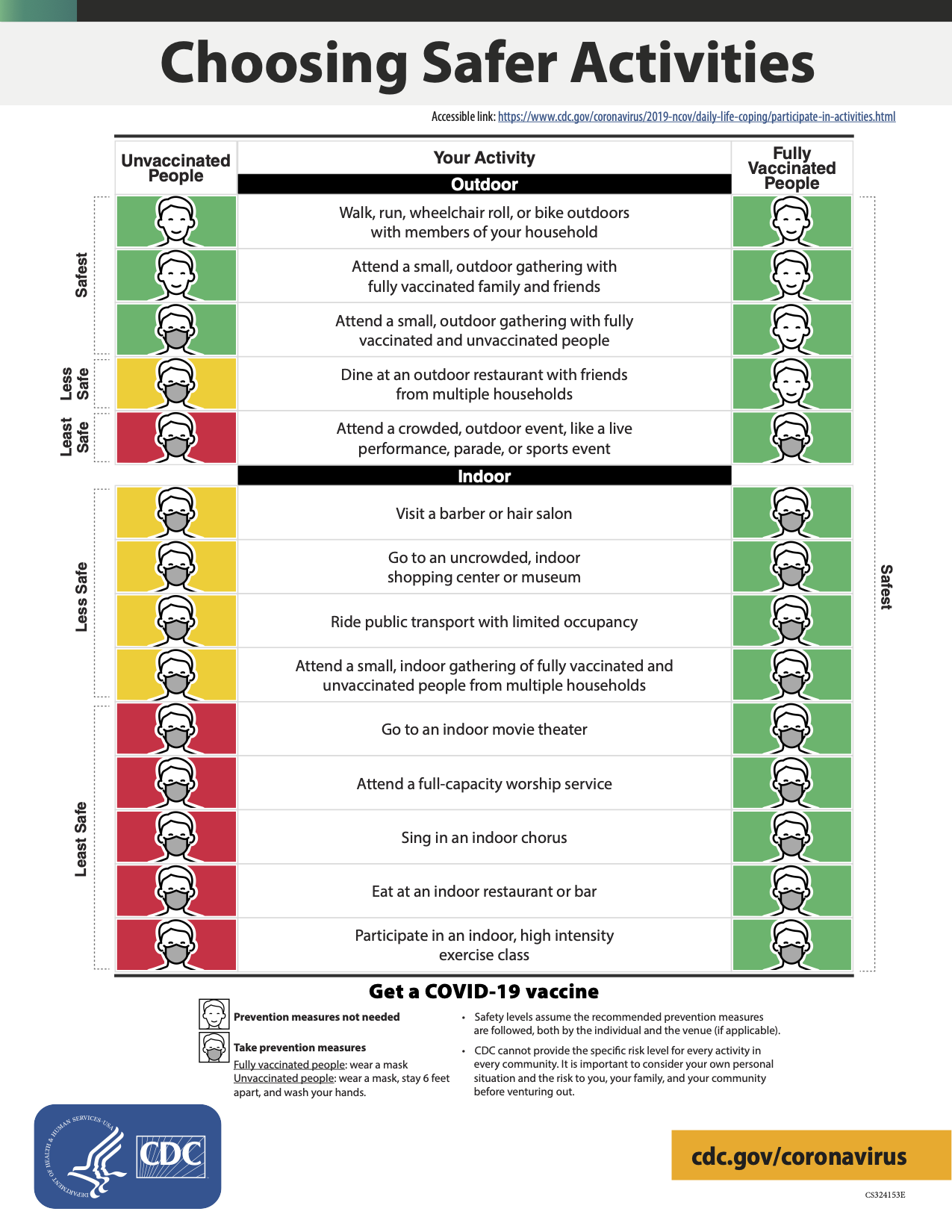
This week we reached a tipping point. In many parts of the country, the supply of the COVID-19 vaccine now outstrips demand.
Consider that on Thursday here in Philadelphia, at a mass vaccination site, there were 4,000 extra doses due to expire. And for the first time, Los Angeles county was projected to not hit its weekly goal of administering 95% of its vaccine supply, because appointments for the first dose have decreased by about 50%.
This after The New York Times had already reported that in rural, more republican areas, there are far more doses of the vaccine available than there are people interested in receiving the jab.
“In a county in Wyoming, a local health official asked the state to stop sending first doses of the vaccine because the freezer was already stuffed to capacity with unwanted vials… In an Iowa county, a clinic called people who had volunteered to give shots to tell them not to come in because so few residents had signed up for appointments.”
A new CNN poll maybe tells us why: 26 percent of Americans say they will not get the vaccine. And among Republicans – that number is 44 percent.
That’s scary. Those folks jeopardize our ability to get to herd immunity. If we don’t get vaccinated and periodically boosted, we could prolong the pandemic and find ourselves continuing to fight this battle for years when we have the medical innovation to get back to living our lives in a matter of months.
As law Professor Shanin Specter argued at Smerconish.com this week: “But without a better carrot or a bigger stick, many Americans won’t get vaccinated and we will suffer more death and dislocation.”
With an eye toward Republican reluctance, this week the Congressional Doctor’s Caucus – composed of GOP senators and congressmen who are also medical professionals – released a video urging Americans to get over their hesitancy.
Rep. Greg Murphy: “It’s obvious to me from a medical standpoint, the only way to protect ourselves and our loved ones.”
Rep. Larry Bucshon: “And to end the government’s restrictions on our freedoms, is to take action and get the vaccine.”
Sen John Barrasso: “I look forward to the freedoms that I along with my loved ones will regain once the vast majority of Americans are vaccinated.”
But will outreach like this be enough to convince the vaccine-hesitant? And is the President’s reserved approach sending the right message?
President Biden’s address Wednesday night to a joint session of Congress provided a perfect chance to demonstrate the vaccine’s effectiveness – and progress. The President could have entered unmasked, into a room packed with vaccinated lawmakers, also unmasked, and touted it as a return to normal.
Instead, he entered with a mask to a sparsely populated room of masked and distanced lawmakers, conveying the message that nothing has gotten any better, despite the 100 million Americans who’ve been fully vaccinated.
We saw a historic image of the President delivered an address to Congress backed by two women – Vice President Kamala Harris and House Speaker Nancy Pelosi. In that camera frame, as President Biden spoke, Harris and Pelosi kept their masks in place, despite the fact that all three have been fully vaccinated.
As CNN medical analyst Leana Wen put it in The Washington Post:
“With masks and distancing, Biden’s speech sent the wrong message about the power of our vaccines…Imagine if Wednesday’s joint session had required that all attendees be fully vaccinated. Those who were not vaccinated were not welcome. But those permitted in could walk into the room, take off their mask, sit next to one another, and listen to a presidential address — just as they did in 2019…The science shows that could have been done. It would have sent an unequivocal message that vaccines are safe, effective and the key to ending the pandemic. Instead, the American people got a different message, one that could impede the nation’s vaccine progress at a time when we can least afford it.”

On the subject of vaccine hesitancy, the Centers for Disease Control may have made things even more difficult with their new guidance on mask-wearing. This week’s edict was deemed by many to be confusing. The new protocols say fully vaccinated people can now:
-
Exercise outdoors, or with members of their household, without a mask.
-
Dine unmasked at an outdoor restaurant with friends from multiple households
-
Hold small unmasked outdoor gatherings with others who are inoculated, or with a “mix of unvaccinated people.”
But the agency did not define how large those gatherings can be. And it said Americans should continue to wear masks in ‘crowded’ public places – like sporting events, concerts, or parades.
Got that? Former FDA commissioner, Dr. Scott Gottlieb, said this:
“The guidance that CDC put out, I think, is a step in the right direction, but it’s relatively confusing. It’s not very clear in terms of what they’re prescribing. I think we need simpler rules if we’re going to be prescribing something over society we need to decide what our public health goal is.”
He’s not alone. Public health professor Daniel Halperin and infectious disease physician Monica Gandhi co-authored a piece in The Wall Street Journal called, “Take Off Your Mask and Go Outside.” They concluded by saying that Americans can be outside without masks except for a “packed setting where social distancing is impossible.”
At this point, those who remain unvaccinated are most at risk. But according to the CNN poll, when asked about returning to our routines the group most comfortable with doing so are those who have not and will not get the vaccine – 87 percent of them!
If we want to convince the unvaccinated to do their part, is the best approach to show them those who have had their shots are still wearing masks, or would displays of our forgone freedoms in a pre-covid world be more effective messaging?
That’s the carrot.
Here’s another: In Chicago, the public health commissioner just introduced a “vax pass” which residents can use to gain access to summer concerts. According to ABC, Dr. Allison Arwady, Chicago’s public health commissioner, stressed that the forthcoming pass “is not a vaccine passport, nor is it an app that businesses check before patrons can enter. Instead, it will be more similar to city passes that give residents discounts, free admission to museums or let them skip lines to city attractions.”
But if this sort of encouragement fails there is also the stick that could be wielded by the government and the private sector.
Businesses have particular leverage as they can require employees to get vaccinations and restrict public access to private spaces like airlines, mass transit, most sporting and cultural venues, restaurants, and movie theatres.
In USA Today, Michael Stern, a former federal prosecutor, argued:
“Businesses should make vaccination a requirement for employment. A covid outbreak can shut down a business and be financially devastating. And failure to enforce basic health and safety measures is not fair to employees who have to work in offices, factories, and stores where close contact is required. Things should get personal, too: people should require friends to be vaccinated to attend the barbeques and birthday parties they host. Friends don’t let friends spread COVID.”
He’s right. And our elected leaders were some of the first in line to receive the COVID-19 vaccine. They argued it was a matter of public health and public duty. Their next obligation is to demonstrate, by way of doing, that the jab has afforded them a new lease on life. Go to a baseball game, eat in a restaurant, and, of course, sit side by side at a joint session of Congress.
______________________________________________________________________________________________________________________

Michael Smerconish
Using the perfect blend of analysis and humor, Michael Smerconish delivers engaging, thought-provoking, and balanced dialogue on today’s political arena and the long-term implications of the polarization in politics. In addition to his acclaimed work as nationally syndicated Sirius XM Radio talk show host, newspaper columnist, and New York Times best-selling author, Michael Smerconish hosts CNN’s Smerconish, which airs live on Saturday at 9:00 am ET.
______________________________________________________________________________________________________________________






